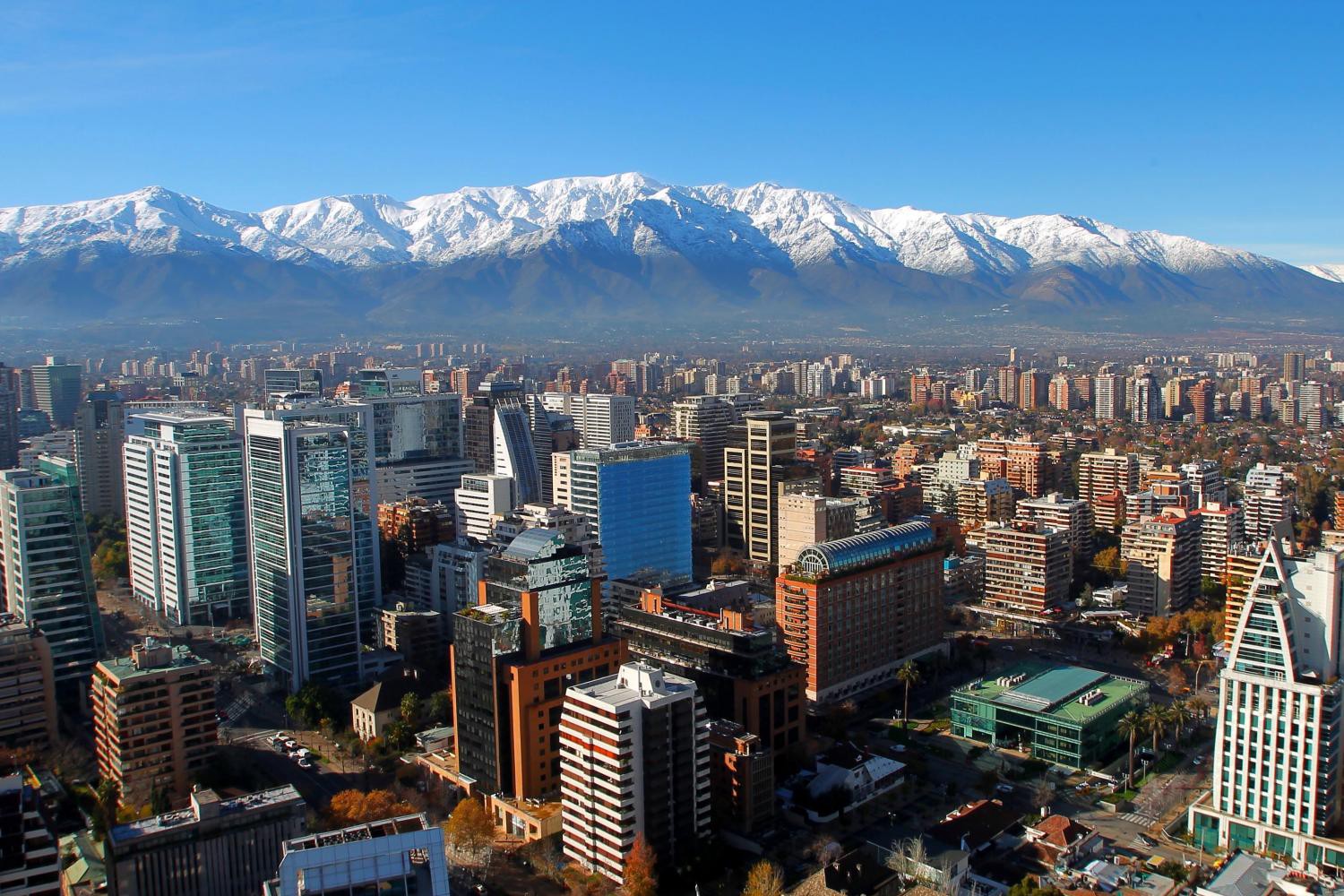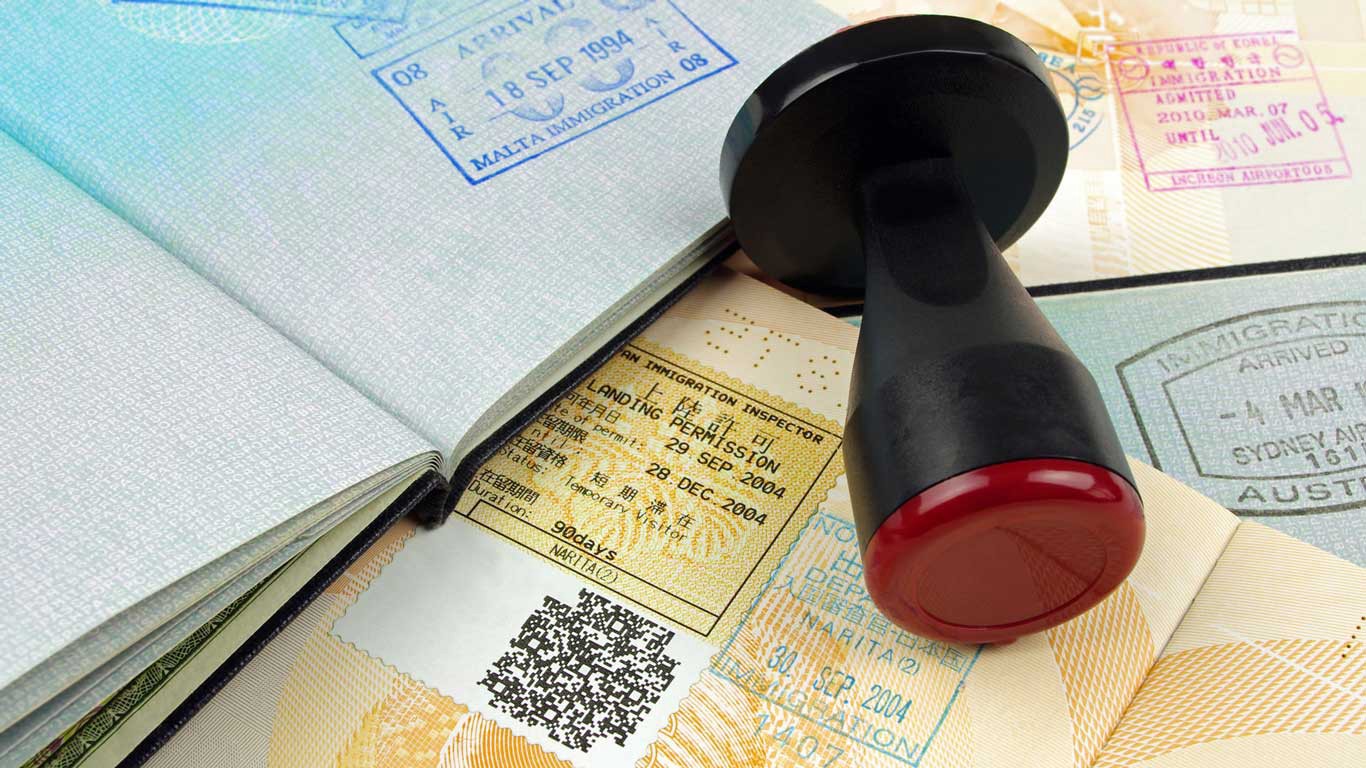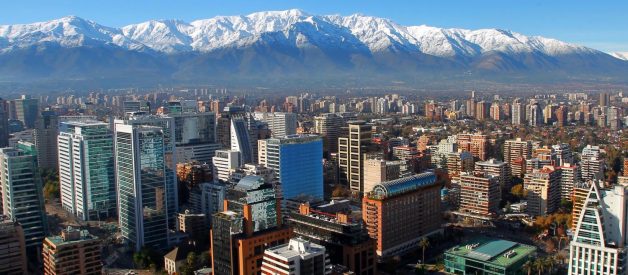Are you a foreigner who wants to come live and work in Chile, yet dont know where to find jobs or how to get a work permit? This article will explain all you need to know about the Chilean labour market, work permits, and how to apply for jobs.

1. The Chilean labour market
Chile is one of Latin Americas most stable and prosperous nations, economically on par with countries like Poland or Turkey (in terms of GDP per capita). Its labour market is strongly oriented towards service and natural resource-based industries (like mining, forestry, agriculture and aquiculture), and has benefitted from virtual non-stop economic growth for the past four decades. Yet, in recent years growth has begun to slow down (particularly in mining), and there are signs Chile may be entering a recession. Simultaneously, Chile has been receiving ever larger numbers of immigrants from countries like Peru, Colombia, Dominican Republic, Haiti, Venezuela, and Spain, forcing the government to question its historically generous immigration policies. So far, no changes have been made to immigration policy, but this may change in the near future.
Types of jobs available
What jobs are available depends critically on your level of Spanish.
Jobs that dont require Spanish
If youre (Chilean) Spanish isnt at an advanced level, you will most likely be looking at the following positions:
- English teacher at a private institute (400?800k CLP/month, i.e. 600?1200USD/month) or by offering private classes (5?13k CLP/hour, i.e. 7?16USD/hour)
- Receptionist / tour agent / tour guide, etc. (300?700k CLP/month, i.e. 450?900 USD/month)
- Selling home-made products to other foreigners (British scones, French cheese, homemade marmalade, US peanut butter, etc.)
- Professional positions within international companies that require a solid domain of English and/or specific technical skills of which there is a high demand locally
Jobs that require Spanish
Once you speak decent Spanish you will have access to the same job opportunities as Chileans. Note though, that opportunities may still be very different from back home, because in Chile (like most of Latin America):
1) Employers tend to assume that you will be working exclusively in the field you obtained your degree in, regardless your extra-curricular activities or previous work experience.
- If you studied medicine, you will become a doctor.
- If you studied history, you will become a history teacher.
2) Employers tend to value some degrees and universities significantly more than others.
- A degree in engineering, law, medicine or economics is considered better than a social science, humanities or arts degree.
- Regardless what the international rankings say, universities from the United States and the United Kingdom are assumed of higher quality than universities in China, Japan, France, Germany, etc. Within Chile, a degree from the Universidad de Chile or Pontificia Universidad Catlica is considered best.
3) There just arent many jobs in some professional areas, like NGOs or international organizations.
4) Finally, the Chilean government doesnt allow foreigners (of most nationalities) to work in certain professions, unless they first go through a lengthy degree legalization procedure. Professions affected include:
- Medicine
- Dentistry
- Primary education
- Translation
If you plan to work in a regulated profession, be prepared for a lot of bureaucracy, inconsistencies, and delay. I know people who were able to get their degree recognised after 6?12 months and people who had to retake a five year bachelor degree in the same field in order to exercise their profession.
Labour conditions and cost of living
Another key thing to consider before moving to Chile are the labour conditions. Though Chile is a high income country, wages are surprisingly low, whilst the cost of living in Santiago is comparable to cities like Amsterdam or Berlin.
- Time: Chileans work 45 hours a week (0900?1900) and receive only three weeks of holiday per year and a handful of public holidays (feriados). Employees are expected to take their holidays mostly in January or February.
- Money: The minimum wage is 270k CLP (425 USD) and many Chileans dont earn much more than this. Recent university graduates may receive 600k-1000k CLP (920?1400 USD), but its hard to meet Chileans with years of work experience earning more than 2,500k CLP (3,800 USD) as a monthly net salary.
- Cost of living: Some things in Chile are very cheap (like food purchased at a local market), whilst others are very expensive (like health care and education). Expect to need at least 500?700k CLP (700?1100USD) per person per month to cover your basic needs (i.e. room in a shared apartment, food, public transport, and some pocket money for going out occasionally).

2. How to get a Chilean work permit
DISCLAIMER: The Chilean Government is currently (May 2018) redesigning its visa application process and it is still unclear how this will affect work permits. Most significantly, its been announced that work permits applications can only be submitted in your country of current residence, and NOT in Chile anymore. Yet, it is still unclear if and when this new application process will begin.
Once youve made up your mind on moving to Chile, its important to prepare for the next step: the work permit.
Types of work visas
There are many types of visas available (see www.extranjeria.gob.cl). The two most relevant for most jobseekers at the moment of writing are:
1. Visa sujeto a contrato
- Requirements:
- a work contract by any company registered in Chile that needs to be legalized by a notary in Chile, which includes clauses regarding the (1) wage, (2) start date (clusula de vigencia), (3) return home upon termination contract (clusula de viaje), (4) contribution to Chilean social security system (clusula de Rgimen Provisional), (5) contribution to Chilean tax system (clusula de Impuesto a la Renta)
- Valid for: 1 year, afterwards you need to get a 1-year extension before being able to apply for permanent residency
2. Visa temporaria para professionales
- Requirements:
– a legalized university degree, which can be done by visiting in the country in which the degree was issued the ministry of education and next the respective Chilean consulate. In case the country is not a member of the Apostille Treaty, you will need to get a third stamp at the Foreign Ministry in Chile. Finally, dont forget to get your degree translated by an official translator (only applicable if your degree isnt issued in Spanish or English).
- Valid for: 1 year, afterwards you can apply for a 1-year extension or apply for a permanent visa
General visa requirements
Besides these visa-specific requirements, you will also need to provide some general documents, like:
- Visa application form
- Copy of your passport
- Several passport photos (NOTE: These photos have a slightly different format than most passport photos, and you need to get them taken in Chile by a photographer specialised in visa photos. I personally used the photographer in Metro Los Leones, Portal Lyon (basement, right side)
- Copy of your visa entry stamp
DISCLAIMER: This is a brief summary of visa requirements as of March 2015. Since then, visa requirements may have changed. ALWAYS check at Extranjeria.cl before submitting your application.
Other things to know about the visa application process
Regardless what type of visa you apply for; here are few other things you might want to know.
- Where to apply: If possible, enter Chile on a tourist visa and apply once here, and NOT at a Chilean consulate. In most cases your application will be evaluated using less strict criteria in Chile.
- If you need to ask Extranjeria any questions: Book an appointment online and get serviced in 15 minutes. Otherwise you might risk spending 2?8 hours waiting for your turn. If you need urgent assistance, try to make it to the Extranjeria building at least 1 hour before opening, and beat the cue.
- When to receive results: It normally takes 3?6 months for Extranjeria to review your application (with offices outside the Region Metropolitana typically a bit faster). Fortunately though, after 4?8 weeks Extranjeria will send you a letter confirming its receipt of your application. With this letter you can stay in Chile for as long as they take to decide on your application AND you can also leave/re-enter Chile as often as you like (provided you show the letter at customs).
- How much does the visa cost: Chile charges the same amount Chilean citizens are charged for a comparable visa in your country. Ive heard stories of foreigners being charged anything between 20?1000 USD. Current prices are listed on their website (look for ?aranceles? on http://www.extranjeria.gob.cl/aranceles/.

3. How to apply for jobs
Once you have your work permit approved you are ready to apply for local jobs.
Where to find jobs
There are two main ways to find jobs in Chile; through your personal network (what Chileans call a ?pituto?) or through job boards.
Building a personal network
Some good networks for meeting foreigners and internationally oriented Chileans include:
- Internations (Internations.org)
- International Association of Chile (www.iachile.org/)
- Couchsurfing (Couchsurfing.org)
- The Chile Experience: https://www.facebook.com/groups/thechileexperience/
- IPWA (Women only)
- Groups listed on Meetup.com
Using job boards
The most important job boards are:
- Trabajando.cl
- Laborum.cl
- Computrabajo.cl
- Indeed.cl
Additionally, you may want to use the following job boards:
- LinkedIn (only more senior positions)
- Yapo.cl, Mercadolibre.cl, Facebook (unskilled jobs)
- Craigslist (jobs that dont require Spanish)
- Getonbrd.cl (IT-related jobs)
- Pegasconsentido.cl (jobs with a social impact)
Starting your own business
Alternatively, can also consider opening your own business. The Chilean government actually makes it very easy for you to do so, thanks to their website http://www.empresasenundia.cl/. If you need more guidance, there are excellent agencies (like Lanzatesolo.cl) that can help you set up business for less than 200 USD, also if you dont speak much Spanish.
Applying for jobs
Now, you are ready to apply for jobs. Most foreigners need about 3?6 months to get hired somewhere, though those seeking employment in specific niches may take a bit longer.
Applying from abroad
In theory you can apply for jobs in Chile from anywhere in the world. In practice, most companies wont consider your application until youre actually in Chile and available for interviews on a 1?7 day notice. For this reason, it is strongly recommend to arrive in Chile first (as a tourist), and only then start applying for jobs.
Applying from with Chile
Once in Chile, itll be a lot easier to get a job. Yet, it still wont be easy. Most Chilean employers wont consider your application until you have a temporary work permit, and wont be interested in helping you get one. Just hold on. Eventually someone will help you.
A typical selection process
Heres what you can expect from the selection process:
1. Sending your CV: You apply by submitting a CV using a similar format as in the US/Europe. No cover letter and no personal photo needed.
2. A phone interview: A psychologist (in Chile virtually all recruiters are psychologists) may call you for 3?15 minutes to ask you a few basic questions about your work experience, availability and/or salary expectations (monthly/after tax)
3. An in-house interview: A psychologist may invite you to take a 30?60 min interview at their office and/or take some psychological tests. In Chile projective tests like Hombre bajo la Lluvia, Luscher, Zulliger or Rorschach are quite popular.
4. A second in-house interview: Your future boss may invite you in for a second 30?60 min interview.
5. Reference and background checks
6. Salary negotiations
Average wages in Chile
To get a general idea of how much someone in a certain position should earn, have a look at:
- http://www.mifuturo.cl
- http://www.comparatusueldo.com/
- http://www.tusalario.org/chile/main

Youre hired! Whats next?
Congratulations on getting hired! Youre almost ready to enjoy your new life in Chile. But first, there are still a few hurdles to overcome.
First, Chilean law requires you to register with a pension fund and health insurance and requires your employer to subsequently deposit each month 10% and 7% to these respective funds. You also need to register with the tax office and get a local bank account.
- Pension Fund (AFP)
All foreigners are by law required to register with the AFP Planvital (https://www.planvital.cl/) for the first 2 years of their stay in Chile. Upon leaving Chile, it is possible (though difficult!) to withdraw all pension savings at once. WARNING: Do not expect your Chilean Pension to be any significant contribution to your home pension. All AFP are poorly managed and charge excessive commission fees.
- Health Insurance (FONASA/ISAPRE)
Employers are legally required to subtract 7% of your income and deposit it into the Chilean health insurance of your choice. It doesnt matter if you already have health insurance elsewhere, by law your employer is required to deposit into one of Chiles FONASA/ISAPRE.
All foreigners are automatically subscribed to Chiles public health insurance FONASA, but may opt to instead register with a private health insurance fund (ISAPRE). For those earning more than 600k CLP a month, an ISAPRE typically offers better coverage than FONASA.
Key differences between FONASA/ISAPRE:
FONASA: Free medical care for most conditions in underfunded and poorly managed public hospitals. Service is ok for minor health issues, but very problematic for more serious conditions.
ISAPRE: Private medical care in reasonable to excellent quality private hospitals. Top clinics include Clnica Alemana, Clnica Las Condes and Clnica Indisa. Depending on your age, gender, monthly contribution, clinic preference and health status at moment of registration, you will receive a table listing % coverage per clinic / type of illness. ISAPRE charge women of reproductive age significantly more than men. WARNING: Chiles private health care system is notorious for overmedicating and overcharging its patients. Be careful when using a private clinic, as most ISAPREs usually only cover part of your medical bill, and clinics will find many tricks to keep you in the hospital longer.
HOW TO GET MEDICAL ASSISTANCE: In the event of a medical emergency, dial 131 to call an ambulance or (if medically possible), get a taxi to take you to the nearest clinic (=faster option). For other medical needs, you must choose your own clinic and department and book an appointment with a specialised doctor. Use agendadoctor.com to book last-minute appointments.
- Taxes (SII)
All foreigners are legally required to register with the SII and declare their income obtained in Chile in April each year.
- Bank Account
Once you have a valid Chilean national ID (RUT; Rol nico Tributario) you can get a local bank account. The Chilean government allows all to register for a free basic debit bank account (CuentaRut), but you will probably prefer to have a regular bank account from another bank.
Thank you!
I hope you enjoyed reading this brief guide to getting a job in Chile. All information is based on my personal experiences as a Dutch entrepreneur who moved to Santiago 3years ago. If you have any questions or suggestions to improve this article, please let me know!


